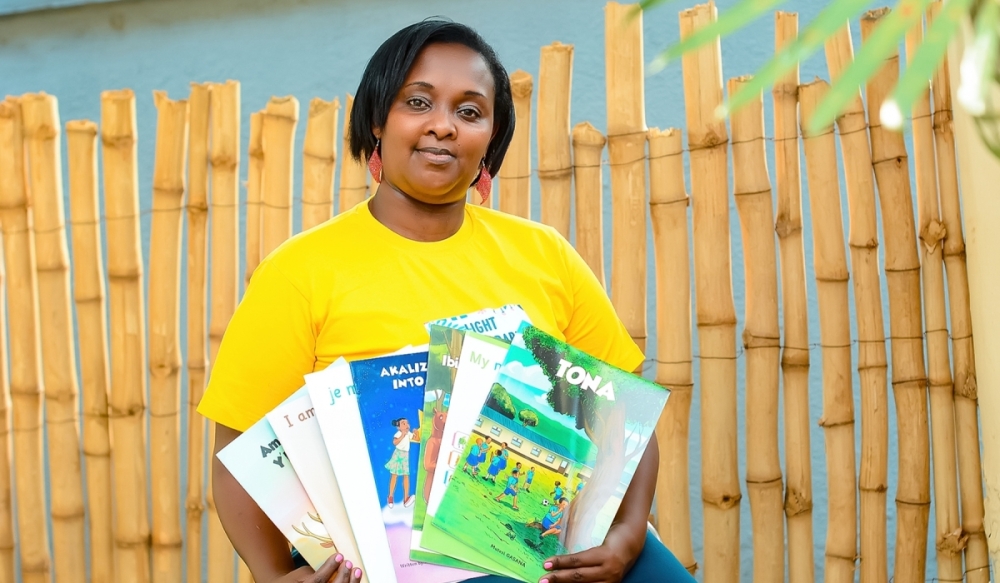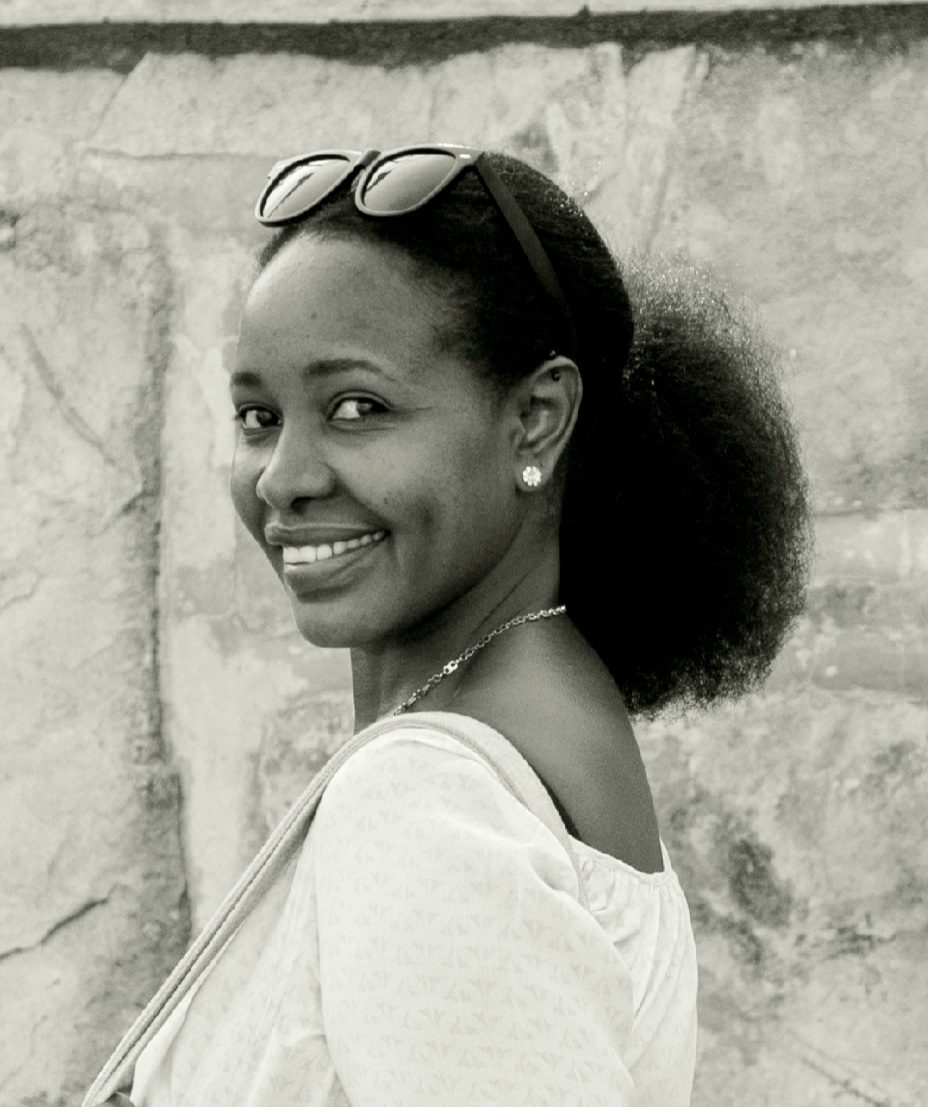

Several studies have shown that there is a decline of reading culture globally, particularly in the advent of internet-based technologies and social media, especially among the young generation and children being born today.
Reading is by far still an essential ability for learning, personal development, and societal progress because it is through reading that we are able to comprehend things and interpret information.
The diminishing reading culture is a result of many things, among them busy lifestyles of people in today’s world where work, family and social obligations takeover, with many finding themselves not being able to make time to read or teach children how to read.
Similarly, the challenge of information overload caused by social media and digital media is another reason people don't read as much because with the constant stream of news, notifications, and updates, people feel overwhelmed and have less time and energy for reading.
Researchers further found that the short attention span and desire for instant gratification fostered by social media make it difficult for people to engage in long-form reading.
With this lack of interest to read starting with parents and guardians, very often even the children will find themselves engrossed more in gadgets such as phones and computers instead of books.
For many young people today, reading is seen as boring, outdated and time consuming, instead preferring visual and auditory options. They would rather watch videos, listen to podcasts or audio books than feel the crinkle of the page.
Amidst all this, the technology advent has affected the mother tongue more, with many young people and children finding themselves not being able to read simple books written in their mother tongue, let alone understanding.
It is this worrisome trend that has made people like Mutesi Gasana, the founder of Ubuntu Publishing house, to set out to promote reading before it is too late, against this tech-powered tide that is making people less interested in reading.


Gasana, a mother herself and a self-confessed book enthusiast, has started an initiative dubbed ‘Wikendi na Tota’, together with other partners, with the aim of promoting reading especially between parents and children.
"Wikendi Na Tota” is a project run as one of Ubuntu Publisher's initiatives based on ‘Tota’, a brown gorilla that we came up with during the Covid-19 pandemic to entertain and teach children during that period,”
"The Gorilla emerged as a reading and writing space for kids in 2020 and has produced magazines known as TOTAFEST. However, with the experiences we have continued to observe that most parents do not actually make time to read Kinyarwanda mostly with or for their kids,” Gasana says.
She decided to come up with ‘WikendiNaTota’, a reading campaign that is aimed at promoting reading Kinyarwanda books as a family, where parents and guardians take the lead in helping their children to read.
"The campaign aims at promoting the creation of reading time between parents and children. Most of the time, as parents we want our kids to do the best and even want them to read, but children learn more by seeing than being told, WikendiNaTOTA wishes to bridge the gap,” she says.
The children’s book author, publisher, and bookseller who also sings and ministers the gospel, wants parents and guardians to be more involved in helping their children to read and practice their mother language.
It is an idea that came out of her love for reading and wanting to make readers. Her target is at least one Kinyarwanda storybook per week read by parents and children together, using it as an opportunity to interact and share stories.
According to Gasana, this among other things, will help to create easy access to reading resources for the whole family, which will bond over the same books and also help both parents and children learn Kinyarwanda, a language which is getting less spoken among the elite and middle-income households.
"It will also change the narrative that books are free to understand that books are part of the gifts we should offer to kids. This initiative will also build the love for reading the Kinyarwanda language by both locals and the diaspora,” she says.
By the end of 2023, Gasana hopes to have enlisted at least 1000 families which can read and engage with their children every weekend through the monthly festival which brings together children, parents and guardians to read, write, and have fun.
Domesticating reading for sustainability
Despite the threat posed by technology, Gasana believes the reading culture is somewhat improving in Rwanda but there is need for more innovative ways to sustain the practice, especially focussing at home.
"The reading culture is slowly improving in Rwanda but reading local content should be at the helm of it all. Research has increasingly shown that learning to read in one’s mother tongue, especially in school helps reduce dropout rates and makes education more engaging, meaningful, and enjoyable for children,”
"Children who benefit from mother-tongue instruction and learning also perform better in their second language,” Gasana argues.
That is why it is vital for parents to find time in their tight schedule to read with or for the children. Gasana says that while it is understandable that people are leading busy lives, it should not come at the cost of their children.
Sparing 15 minutes every weekend to read a simple Kinyarwanda book is enough to sustain reading among children, especially in their mother tongue.
Gasana has partnered with eKitabu, a multifaceted ebook reader, and Kigali Public Library (KPL) as well as other stakeholders to kickstart the reading campaign whose inaugural edition will take place at the Kacyiru-based library on Saturday, October 7.
The festival will integrate fun activities to make it more interesting for children because today there are no straight ways to keep children focused on reading with all the distractions they face, especially electronic gadgets.
However, according to Gasana, who focuses on writing for children, there are known common rules -give them books and more books. Beyond that, parents have to be involved in reading with them.
"If you want them to read and become readers, read with them and read for them but most importantly read as a parent. We know that they don’t learn by what we tell them but rather by what we do. If you want your kids to read, read,” she says.
What others have to say
Catherine Kukunda, programmes Coordinator, eKitabu, which is partnering with Gasana for the festival, says parents and guardians have a bigger role to play in sustaining the reading culture. More advocacy is needed to involve them.
"Parents need to really create time in their busy schedules to read for their children. But it is not only reading; before you read, you need to have a book,” Kukunda says, adding that parents need to invest in books for their children.
Similarly, parents or guardians should include story books in the gifts they buy for their children for them to understand the value of books. They can also be taking children to library book events and festivals -something parents don’t find time to do.
On one hand, she says there is a gap in publishing and utilisation of the resources, where there are enough readng resources on the market and in libraries but there is little effort for people to buy books or visit these places where they can find books together with their children.
"If that gap can be bridged, perhaps we would see more parents and children embracing reading, taking children to places where they can read instead of allowing them to sit and play electronic games,” Kukunda says.
Kukunda says that in some neighbouring countries like Kenya, the reading culture has persisted, but it has taken a deliberate effort by publishers and parents to make children more involved in reading.
Her sentiments are shared by Esther Uwase, a poet and author of three books namely "A Conversation with Dusk", "Too Late", and "License To Thrill”, but she says it is important for all parties to play their part accordingly.
"Publishers should do what they do without looking at the money, but rather publishing what they believe readers want. We have initiatives in place but we need to know if what they are doing is what the people want,”
"However, parents need to find time to engage with their children in terms of reading, but also schools and community projects need to allocate enough time for reading,” Uwase says.
Beyond that, Uwase says affordability of books and reading materials is key, because currently books published locally, whether for children or adults, tend to be very expensive.
"We need to have a model where children in public schools and from less privileged backgrounds can also be able to afford these books, for reading to be more inclusive,” the young author says.
Laurent Bizirema Ndatana, 76, a poet who also writes books on Rwanda's traditional weddings and culture says that the writer’s biggest worry is to publish books but there are no people to buy the books.
"As an author, it concerns me when I produce something and there are no people to buy the books. People simply don’t go to libraries or bookshops to check out books, yet we have a lot,”
"We also have a situation where people don’t write anymore. People are no longer interested in writing. We have an older generation of writers who need young ones to take over,” Ndatana says.
Ndatana points out that it is common for parents and guardians to send their children abroad where they study in foreign languages and end up speaking those languages, forgetting their mother tongue.
The author who worked with Fr. Alexis Kagame, one of the most renowned Rwandan authors, says that today young people seem less interested in reading and learning more about the country and their past- a trend he says is worrisome.
Starting early
Ndatana says that if the reading culture is not propagated early, it can be difficult to introduce children to reading, especially about their mother tongue and culture, when they are already grown.
His point is reiterated by Dominique Uwase Alonga, CEO and founder of Imagine We Rwanda, one of the leading innovative publishing houses in Rwanda, who argues that the reading culture is not dead yet, but there is a need to do more to keep it alive.
Alonga says it is key for parents and guardians to start reading for children as early as one month old.
"As a parent, you can create a routine because children will connect your affection to books early on and it will create positive reinforcement. Invest in building that habit yourself,”
"Children imitate what they see not just what they hear,” Alonga says.


